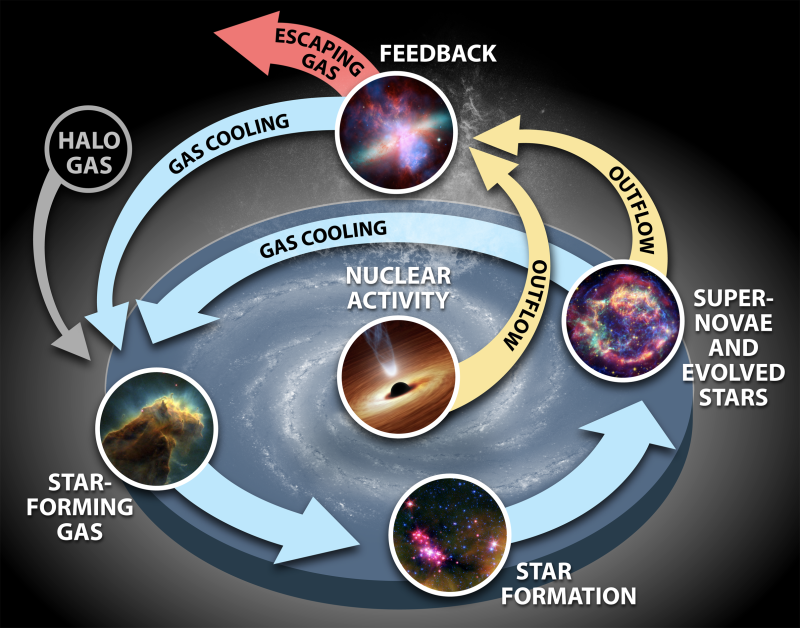Higher Degree by Research Application Portal
| Title | Understanding the interplay between gas and star formation in nearby galaxies |
|---|---|
| Supervisor | Prof Barbara Catinella |
| Course | Doctor of Philosophy |
| Keywords | Astrophysics; galaxy evolution; observational astronomy; interstellar medium |
| Research area | Physical Sciences |
| Project description | Cold hydrogen gas—the fuel for star formation—is key to understanding how galaxies form and evolve. Galaxies act as star factories, converting this cold gas into stars through the gas–star formation cycle. Yet, our knowledge of cold gas (atomic and molecular hydrogen) still lags behind our understanding of stars, prompting major efforts to build large samples of galaxies with all the key measurements needed to study this cycle in detail. Our group plays leading roles in several cutting-edge, multi-wavelength surveys of the interstellar medium in nearby galaxies. MAUVE is a flagship program on the Very Large Telescope targeting galaxies in the Virgo Cluster to understand how dense environments shape galaxy evolution. WALLABY is conducting the largest survey of atomic hydrogen ever attempted, with over 5,000 galaxies already detected. We are also involved in LADUMA, a deep HI survey with MeerKAT that probes the evolution of atomic gas across cosmic time. These are transformative datasets for understanding how galaxies acquire, retain, and lose their gas. With these rich datasets, we are exploring fundamental questions such as: Why haven’t star-forming galaxies like the Milky Way already exhausted their gas supply? What processes govern the inflow and outflow of gas in galaxies today? And how do these processes depend on both local conditions and large-scale cosmic environment? We invite motivated students to join our vibrant research team, co-led by Prof. Barbara Catinella and Prof. Luca Cortese. We offer PhD projects on a wide range of topics related to gas and star formation in nearby galaxies, using data from MAUVE, WALLABY, LADUMA and more. Students will gain hands-on experience in multi-wavelength data processing, large data set analysis, statistical techniques, and comparison with theoretical models—developing valuable skills in observational astrophysics and data science. Image credit: Origins Space Telescope, NASA. |
| Opportunity status | Open |
| Open date | 01 Jul 2025 |
| Close date | 31 Dec 2025 |
| School | Graduate Research School |
| Contact | Prof Barbara Catinella - barbara.catinella@uwa.edu.au |
| Course type | Doctorates |
| Description | The Doctor of Philosophy (PhD) is a program of independent, supervised research that is assessed solely on the basis of a thesis, sometimes including a creative work component, that is examined externally. The work presented for a PhD must be a substantial and original contribution to scholarship, demonstrating mastery of the subject of interest as well as an advance in that field of knowledge. Visit the course webpage for full details of this course including admission requirements, course rules and the relevant CRICOS code/s. |
| Duration | 4 years |
Guidance
